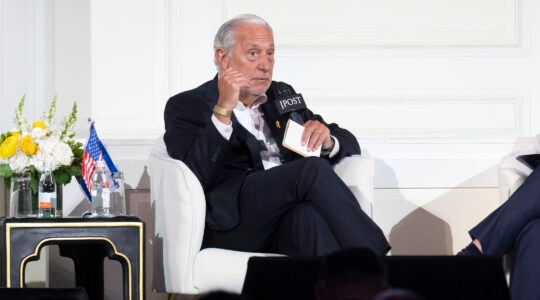WASHINGTON (JTA) — Supreme Court Justice Antonin Scalia said it was an "outrageous conclusion" that a war memorial featuring a cross only honors Christian war dead.
The statement came during arguments Wednesday in the case of Salazar v. Buono, which deals with the constitutionality of a 6 1/2-foot cross sitting on what originally was public land in California’s Mojave National Preserve.
The memorial was constructed 75 years ago to honor World War I victims, but 10 years ago it was challenged by a National Park Service employee who thought it violated the Constitution’s ban on government establishment of religion.
Congress passed legislation in 2004 declaring the site a national memorial. The legislation transferred the ownership of the land on which the memorial sits to the Veterans of Foreign Wars in exchange for five privately owned acres in the preserve.
Scalia was responding to a statement from American Civil Liberties Union lawyer Peter Eliasberg that such a memorial "signifies that Jesus is the son of God and died to redeem mankind for our sins," and thus could not be a secular memorial.
Scalia, according to media reports, responded that the cross was the "common symbol of the resting place of the dead" and asked whether the lawyer would instead want erected "some conglomerate of a cross, a Star of David and, you know, a Muslim half-moon and star?"
Eliasberg responded, "I have been in Jewish cemeteries. There is never a cross on a tombstone of a Jew."
The justice retorted, "I don’t think you can leap from that to the conclusion that the only war dead that that cross honors are the Christian war dead. I think that’s an outrageous conclusion."
Legal observers said the court may end up deciding the case on the narrower issue of whether Congress acted legally in transferring ownership of the land to a private entity rather than the constitutionality of the cross sitting on public land.
JTA has documented Jewish history in real-time for over a century. Keep our journalism strong by joining us in supporting independent, award-winning reporting.





